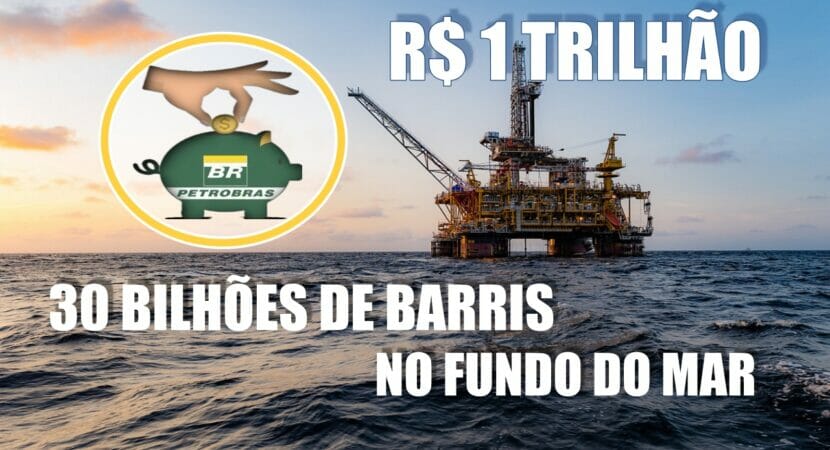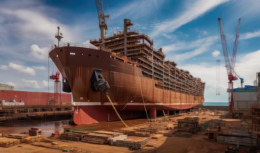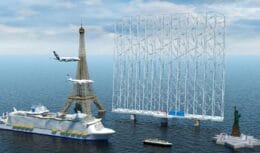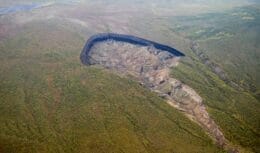
30 billion barrels at the bottom of the sea: oil production on the Brazilian Equatorial Margin promises to generate revenue of R$ 1 TRILLION
In the vastness of Brazil's northern coast, a race for “black gold” is unfolding, triggered by discovery of oil deposits in neighboring countries Guyana and Suriname. However, this competition does not just involve oil companies; it also divides the oil sector, environmentalists and even the government of Luiz Inácio Lula da Silva (PT). The reason for this dispute? The relative proximity of the Amazon Rainforest and the mouth of the Amazon River.
The region that stretches from Rio Grande do Norte to Amapá is known as the Brazilian Equatorial Margin and shares geological characteristics with Guyana and Suriname, where oil reserves estimated at 13 billion barrels were found. Conservative estimates from the Ministry of Mines and Energy (MME) suggest that the Brazilian side may have approximately 10 billion commercially recoverable barrels. However, some experts, such as economist Adriano Pires, director of the Brazilian Infrastructure Center (CBIE), believe that the region can surpass the 13 billion barrels mark.
The total volume of oil in deep waters could be even greater, reaching 30 billion barrels, but the focus is on “recoverable” barrels, those considered commercially viable.
The volume of 10 billion recoverable barrels is comparable to the proven pre-salt reserves, which total 11,5 billion barrels. This solidifies the Equatorial Margin as a “new pre-salt” in terms of potential size. Currently, the Brazil has almost 15 billion barrels of proven reserves, after decades of production that yielded around 23 billion barrels of oil from underground.
Eldorado – Petrobras plans to invest around US$3 billion over the next five years in drilling up to 16 wells in the region
The Equatorial Margin is seen by some as a Eldorado, a unique opportunity to produce oil in large quantities before a possible decrease in demand during the energy transition. Furthermore, it is seen as a chance to generate income and social development. However, environmentalists argue that exploitation must be carefully controlled, due to risks of oil spills and impacts on the Amazon Forest, which is home to unique and threatened species, as well as traditional communities.
The central focus of the current discussion revolves around the “FZA-M-59” block, acquired by Petrobras in 2013 in the 11th Bidding Round of the ANP. Located in the Foz do Amazonas basin, this block aroused great interest, as Petrobras requested an environmental license to drill an exploratory well in the region. However, the request was denied by the Ibama due to environmental concerns and “technical inconsistencies” in the studies presented by the company. A Petrobras plans to invest around US$3 billion over the next five years in drilling up to 16 wells in the region, representing almost half of all exploratory investments planned by the state-owned company.
According to MME, there are currently 41 blocks with concession contracts in force in the region for oil and natural gas exploration, in addition to 81 exploratory blocks on offer. However, other oil companies that acquired concessions in the region in 2013 faced difficulties in obtaining environmental licenses, leading to the cancellation or suspension of projects. Until now, only small production fields in shallow waters exist in the Equatorial Margin, all in the Potiguar basin.
Exploration of the new pre-salt is a golden opportunity for Brazil
The exploration of the Equatorial Margin is seen by many as a golden opportunity for Brazil. The economic potential is significant, with the Ministry of Mines and Energy estimating that oil production in the region could generate state revenue of around US$200 billion (equivalent to R$1 trillion considering the exchange rate of R$5 per dollar), considering total production of 10 billion barrels of oil. This could boost social and economic development in one of the country's most deprived regions.
However, in the midst of the global energy transition, the question arises: why look for more oil? The answer, according to Petrobras, is in need of financing the energy transition itself. Even with advances in wind energy and other renewable sources, the demand for oil continues to grow in several industries, such as food, cosmetics, paints and petrochemicals. The “new oil” from the Equatorial Margin, when explored responsibly, could contribute to the country’s energy transition.













Air Force F-16 fighters…
True friend, what they shot down were…
Air Force F-16 fighters…
I would like to know what planet you live on…
Air Force F-16 fighters…
Which genocide are you talking about? Than…
Air Force F-16 fighters…
Everything is fine, 100-year secrecy,…
Air Force F-16 fighters…
Well... It's flying scrap... Typical...
Tenho interesse em conercio
Are there vacancies for a painter?
It's great to know that we are welcome...
Brazil once again becomes an example of how…
I took a 2018 Hard Work, did 240.000km…
I am a production engineer and looking to leverage…
I am interested in working in Europe
The infamous belt bathed in…